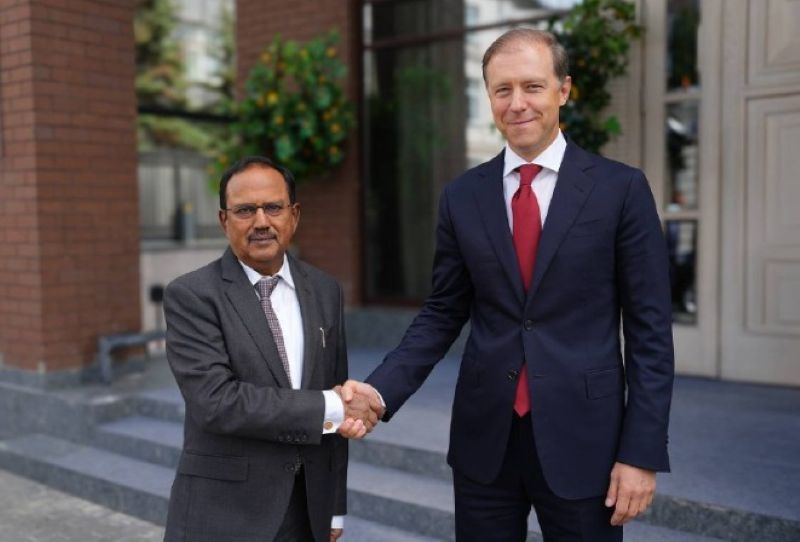
India’s National Security Advisor Ajit Kumar Doval on Friday met Russia’s First Deputy Prime Minister Denis Manturov, where they discussed topical issues of bilateral military-technical cooperation in Moscow, officials said.
Sharing an image of the meeting, the Russian Embassy in India wrote on its Telegram page: “The parties discussed topical issues of bilateral military-technical cooperation, as well as the implementation of joint projects in other strategic sectors, including civil aircraft manufacturing, metallurgy, and the chemical industry.”
Modi’s telephone conversation with Putin
Indian PM Narendra Modi on Friday had a telephonic conversation with Russian President Vladimir Putin, where they reviewed the progress of the bilateral agenda between the two nations, amid the recent tariffs imposed on New Delhi by the US.
Modi said he reaffirmed the commitment to further deepen the India-Russia Special and Privileged Strategic Partnership.
Calling Putin a ‘friend’, Modi wrote on X: “Had a very good and detailed conversation with my friend President Putin. I thanked him for sharing the latest developments on Ukraine. We also reviewed the progress in our bilateral agenda, and reaffirmed our commitment to further deepen the India-Russia Special and Privileged Strategic Partnership. I look forward to hosting President Putin in India later this year.”
In a sharp escalation of trade tensions, India has reportedly suspended a $3.78 billion (₹31,500 crore) defence deal with the United States in retaliation for President Donald Trump’s imposition of a 50% duty on Indian oil imports from Russia, media reports said.
The decision, seen as a strong diplomatic signal, targets the long-pending purchase of six P-8I Poseidon maritime surveillance aircraft from American aerospace giant Boeing.
According to a report by IDRW, the move came on August 3, shortly after the Trump administration revived warnings over India’s continued oil imports from Russia.
New Delhi, however, has rejected what it calls Washington’s “double standards”, pointing to continued US and European energy imports from Russia, including oil, gas, and fertilisers.


